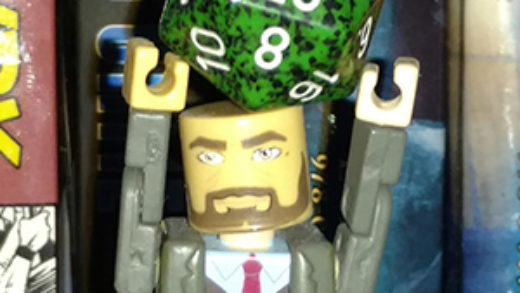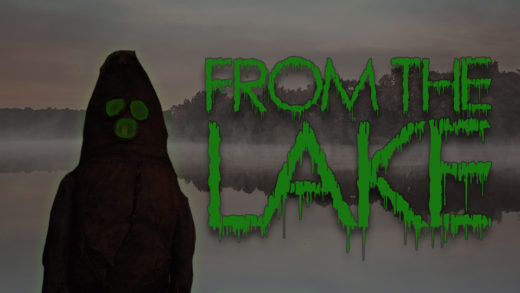While there are plenty of video games that can occupy my time and online gaming options via Fantasy Grounds, Roll20.net, Discord and others are available; spending all one’s time staring at a screen is not always the healthiest and there’s something satisfying about playing games at a table. Since I’m the only gamer in my house, I always have a few games made for single-player or with (good) single-player rules. Here are my Top Five single player tabletop games.
A number of brick and mortar game stores in the USA are still open, some even offer curbside pick-up. Support your friendly local game store whenever possible, but also make sure to stay safe!
Unbroken
Unbroken is a card game in which you play the surviving member of a fantasy adventuring party following a failed mission. It’s a resource management/survival game that has a pretty good luck-to-strategy balance; there are times the game ends shortly due to a series of bad draws, but just means “on to the next character!” The learning curve should be fairly low for experienced gamers and set-up is fast, meaning it’s easy to get right into the game. Every game lasts around 30 minutes.
HEXplore It
On a recommendation from a friend, I backed the Kickstarter for the 2nd iteration of HEXplore It, entitled “The Forests of Adrimon.” I haven’t played the first, or other expansions, so my recommendation is largely based on the “Forests” version. HEXplore It attempts to distill the fantasy ttrpg experience into a board game, in which the rule book narrative is the GM. The game can be played with multiple players, but doesn’t suffer from solo play. That said, it’s complex and long. It took me a number of failed play attempts to really “get it” and a game of HEXplore It can take 3-4 hours (as well as a lot of table space). Once the rules are understood, though, it’s got a lot of replayability thanks to the exploration factor of the game and character advancement options.
DungeonQuest
There are a few versions of this game out there. I have the 2014 Revised Edition. Like HEXplore It, DungeonQuest is a fantasy adventure game where the board is based on random tile draws, but the similarities end there. DungeonQuest’s tiles are constrained to its board (though with character and event cards, additional space is required) and both set-up and play are faster. There’s little plot involved in DungeonQuest; it’s simply a randomized (luck-based) hack-n-slash game; character(s) explore a dungeon while dealing with monsters and traps. While the cooperative dungeon-delving game works best with maximum players, it can be played solo; with the player either taking a single character role or playing as a “full team.” A playthrough usually only takes about an hour and some have argued that the playtime isn’t long enough given the number of components/set-up and I can understand that sentiment. It really is best played when there’s time enough for 2 or more playthroughts.
Elder Sign
While the Cthulhu mythos based “Arkham Horror” Elder Sign was designed as a co-op game for up to eight players, it’s design also includes solo play without a change in the rules. There’s a mild learning curve for the game, but the rules are well layed out and easy to follow. The game use a dice pool trying to match the desired symbols mechanic and so there’s a bit of luck over strategy involved, but it’s still a good time. Each session usually takes me about thirty minutes to an hour in solo play.
Eldritch Horror
This is another “Arkham Horror” cooperative game for one to eight players. Unlike Elder Sign, it’s set up closer to a standard board game than a card/dice game. In addition to its board (a world map) there are a number of cards and tokens often in play, so the game requires a bit of table space, but not as much as HEXplore It. (I’ve been able to play “Horror” on my large coffee table.) In multiplayer, I prefer Eldritch Horror to Elder Sign, but the “Sign” has slightly better solo play as one can focus on a single character. If playing Eldritch Horror solo, it’s highly advised to play two or more investigators as a single random event can quickly be a game downfall if only one investigator is in play. That said, the random events and pretending to take different personas in a single play can be a very enjoyable way to spend 2+ hours playing a session.
Pulp Detective
While Pulp Detective is labeled as a 1-2 player cooperative game, it really plays better solo. The player takes the role of a pulp-fiction style detective and attempts to find enough clues (via dice rolls) before the time runs out. There are some fun mechanics like “plot twists” and items that can be used. Each game takes about 20 minutes, but has limited immediate replayability. I’ve only been able to play two to three games in a row before it feeling a bit “samey.”
Honorable Mention: Choose Your Own Adventure
There are currently four different Choose Your Own Adventure card games available, based on the series of books published between 1979 to 1998. I own “House of Danger.” The game is largely a recreation of reading the books with some randomization thrown in. There’s a lot of light reading required and somewhat limited immediate replayability. Unfortunately, due to the nature of the cards and randomization there can be some games that end simply due to a dead-end/no option. That said, like the young ages books, the game is light and easy to play. It can be a solid hour of play with almost no set-up time. Additionally the game can be played cooperatively for any number of players, but really seems best suited for solo or two players, given the reading.
Other Options
My game summaries above are intentionally light and there are other solo play game options out there. The above are my current favorite five (OK, six) as between the them I can experience a different type solo play every time and choose based on available time and table space. For more detailed information and to seek out other options, I highly recommend the comprehensive and group collaborative site: Board Game Geek.


Recent Comments